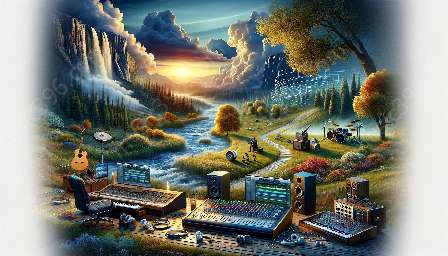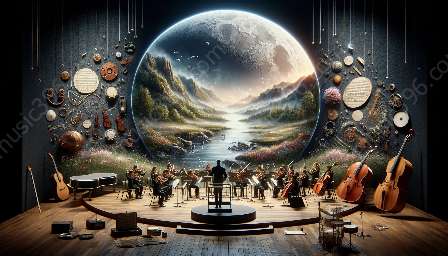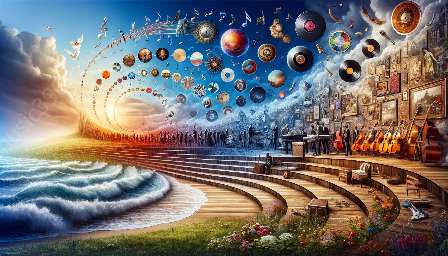Electronic music has become a global phenomenon, with vibrant scenes emerging in various cities around the world. This topic cluster explores the diverse electronic music cultures, from the underground clubs of Berlin to the innovative computer music labs of the United States, and how it has influenced the music industry.
1. Introduction to Electronic Music
Electronic music refers to music that is created using electronic devices and technology, such as synthesizers, drum machines, and computers. It encompasses a wide range of genres, including techno, house, trance, drum and bass, dubstep, and many others. The global electronic music community has created a dynamic and ever-evolving landscape that continues to shape the modern music industry.
2. Berlin, Germany
Berlin has long been considered a hub for electronic music, known for its legendary clubs, underground parties, and the influential Berlin techno sound. Clubs like Berghain and Tresor have become iconic symbols of the city's vibrant electronic music scene, drawing enthusiasts and artists from around the world. The city's rich history, cultural diversity, and openness to innovation have played a significant role in shaping the global electronic music landscape.
3. Detroit, United States
Detroit is widely recognized as the birthplace of techno music. Emerging in the 1980s, techno reflected the city's industrial landscape and gave rise to a new era of electronic music. Artists like Juan Atkins, Derrick May, and Kevin Saunderson pioneered the genre, laying the foundation for the electronic music movement that would eventually spread across the globe. Today, Detroit continues to be a key influencer in the evolution of electronic and computer music.
4. London, United Kingdom
London has a rich history of electronic music, encompassing diverse genres from drum and bass to grime and dubstep. The city's iconic clubs and music venues have been at the forefront of the electronic music scene, serving as breeding grounds for emerging talents and pushing boundaries in sound exploration. The UK's influence on electronic and computer music extends beyond its borders, with notable contributions to the global electronic music community.
5. Tokyo, Japan
Japan's electronic music scene is known for its innovation and boundary-pushing creativity. The fusion of traditional Japanese culture with cutting-edge electronic music has given rise to unique sounds and styles that have captivated audiences worldwide. Tokyo's diverse range of clubs, events, and festivals has made it a thriving center for electronic and computer music, demonstrating the global reach and impact of the genre.
6. Computer Music Innovation
The emergence of computer music has revolutionized the way music is created, produced, and experienced. Computer music labs and research centers around the world have been at the forefront of developing new techniques, software, and technologies that push the boundaries of sound and musical expression. From granular synthesis to algorithmic composition, computer music has expanded the possibilities of sonic exploration and challenged traditional notions of music composition.
7. Impact on the Music Industry
The global electronic music scenes have had a profound impact on the music industry, influencing not only the creation and production of music but also shaping the way music is distributed, consumed, and experienced. The rise of electronic and computer music has led to the emergence of new business models, technological advancements, and cultural movements that have reshaped the musical landscape.
8. Conclusion
The global electronic music scenes represent a diverse tapestry of cultures, sounds, and experiences that continue to shape the modern music industry. From the underground clubs of Berlin to the innovative computer music labs of the United States, electronic and computer music have revolutionized the way we create, listen to, and experience music, expanding the boundaries of sound and challenging traditional notions of musical expression.









































